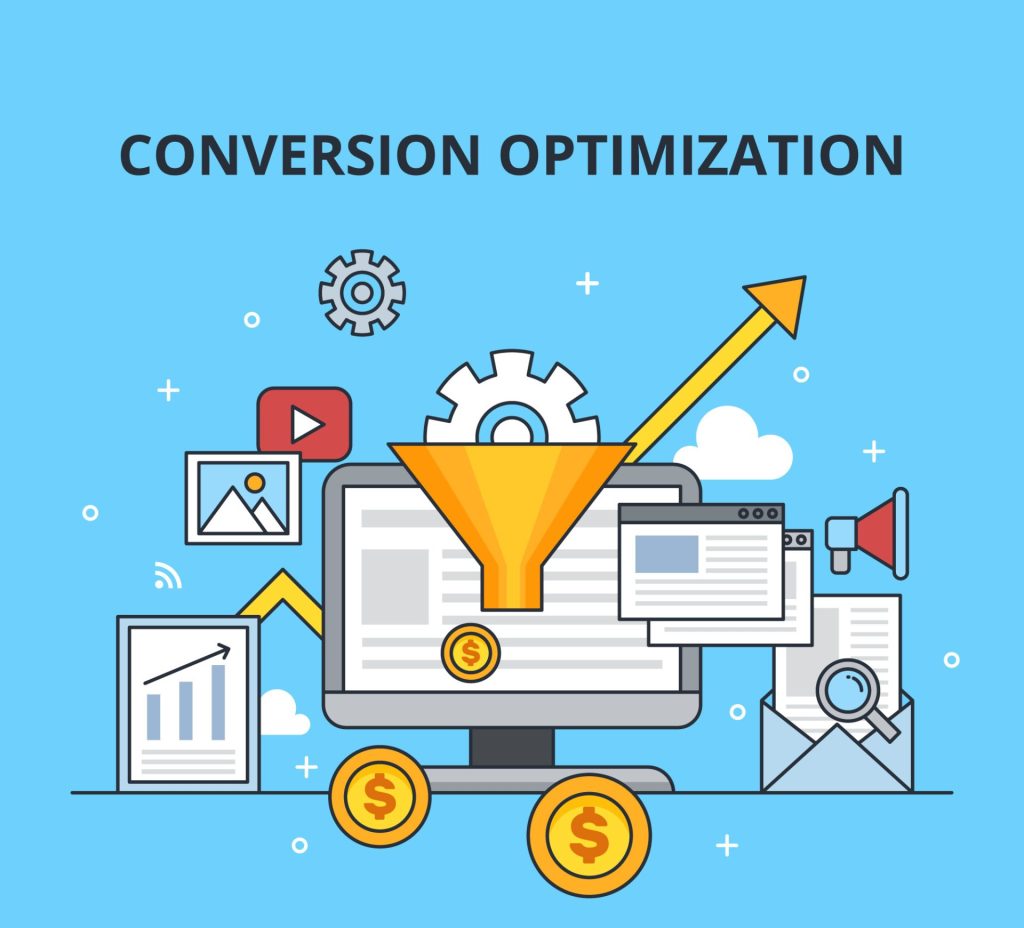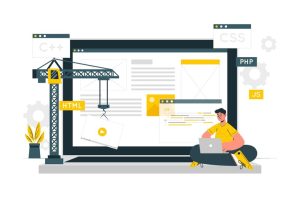Introduction
In today’s digital landscape, where consumer behavior is constantly evolving, businesses must employ effective marketing strategies to stay competitive. Among these strategies, the concept of funnels has emerged as a fundamental framework for guiding potential customers through the purchasing journey. In this blog post, we’ll delve into the world of funnels, comparing the functionality of Click Funnels with traditional sales funnels, and exploring their respective roles in modern marketing.
Overview of Click Funnels and Sales Funnels
Let’s start by clarifying what we mean when we refer to Click Funnels and Sales Funnels.
Click Funnels: Click Funnels is a comprehensive software platform developed to simplify the process of creating, managing, and optimizing sales funnels. Founded by Russell Brunson in 2014, Click Funnels has gained widespread popularity among entrepreneurs and marketers for its user-friendly interface and powerful features.
Sales Funnels: On the other hand, sales funnels, in a broader sense, encompass the strategic framework businesses use to guide potential customers through various stages of the buying journey. This traditional approach predates the advent of dedicated funnel-building software and involves crafting a series of steps aimed at converting leads into paying customers.
Importance of Funnels in Marketing
Why are funnels so crucial in modern marketing practices? Let’s explore their significance:
Streamlining the Customer Journey: In today’s fast-paced digital world, consumers are inundated with choices. Funnels provide a structured pathway for guiding prospects from initial awareness to final purchase, making the buying process more efficient and intuitive.
Addressing Customer Needs: Effective funnels are tailored to meet the specific needs and preferences of target audiences at each stage of the buyer’s journey. By understanding customer pain points and motivations, businesses can create compelling content and offers that resonate with their audience.
Maximizing Conversions: At its core, the purpose of a funnel is to drive conversions. Whether it’s capturing leads, nurturing prospects, or closing sales, a well-designed funnel optimizes every touchpoint to encourage action and drive revenue.
What are Sales Funnels?
At its core, a sales funnel represents the journey that a prospect takes from initial awareness of a product or service to making a purchase. Just like a traditional funnel, it begins with a wide opening, capturing the attention of a broad audience, and gradually narrows down as prospects progress through various stages, ultimately leading to conversion.
The concept of a sales funnel is rooted in the understanding of consumer behavior and psychology. It acknowledges that not all prospects are ready to buy immediately and recognizes the importance of nurturing relationships and building trust over time.

Image Source: Freepix
Components of a Sales Funnel
A typical sales funnel consists of several key components, each serving a specific purpose in guiding prospects towards conversion:
1. Awareness: This is the top of the funnel, where prospects become aware of your brand, product, or service. It’s crucial to create compelling content and marketing campaigns to attract attention and generate interest.
2. Interest: Once prospects are aware of your offering, they move to the interest stage, where they seek more information and engage with your content. Providing valuable resources, such as blog posts, videos, and guides, can help nurture their interest and keep them engaged.
3. Consideration: In this stage, prospects are evaluating their options and considering whether your offering meets their needs. It’s essential to address their concerns, highlight your unique selling propositions, and provide social proof, such as customer testimonials and case studies.
4. Decision: As prospects move closer to making a purchase, they enter the decision stage, where they weigh the benefits and drawbacks of choosing your product or service. Offering incentives, such as discounts or free trials, can help incentivize them to take the final step.
5. Action: This is the bottom of the funnel, where prospects take the desired action, whether it’s making a purchase, signing up for a trial, or requesting more information. It’s essential to make the conversion process as seamless as possible and provide clear calls-to-action to encourage action.
Purpose and Benefits
The primary purpose of a sales funnel is to guide prospects through the buying journey and maximize conversions. However, sales funnels offer several additional benefits, including:
– Improved Lead Quality: By qualifying leads at each stage of the funnel, businesses can focus their efforts on prospects who are most likely to convert, thereby improving overall lead quality.
– Increased Conversion Rates: By optimizing each stage of the funnel and addressing the specific needs of prospects, businesses can increase conversion rates and drive more sales.
– Better Customer Insights: Sales funnels provide valuable insights into customer behavior, preferences, and pain points, allowing businesses to refine their marketing strategies and tailor their offerings to better meet customer needs.
Understanding Click Funnels
Click Funnels is an all-in-one software platform designed to simplify the process of building, managing, and optimizing sales funnels. Developed by Russell Brunson and his team in 2014, Click Funnels has gained immense popularity among entrepreneurs, marketers, and businesses of all sizes for its user-friendly interface and robust features.
Key Features of Click Funnels:
1. Drag-and-Drop Funnel Builder: Click Funnels offers an intuitive drag-and-drop editor that allows users to create custom sales funnels without any coding knowledge. Users can choose from a variety of pre-designed templates or build their funnels from scratch.
2. Pre-Built Templates: Click Funnels provides a wide range of professionally designed templates for various industries and use cases, including lead generation, sales, webinars, and more. These templates are fully customizable, allowing users to tailor them to their specific needs.
3. Integrated Email Marketing: Click Funnels includes built-in email marketing automation features, allowing users to capture leads, send follow-up emails, and nurture prospects directly within the platform. This integration streamlines the lead nurturing process and helps drive conversions.
4. Payment Gateway Integration: Click Funnels seamlessly integrates with popular payment gateways, such as Stripe and PayPal, enabling users to accept payments and process transactions directly through their funnels. This feature simplifies the checkout process and reduces friction for customers.
Enjoying the reading so far? Take a minute to share this content to your friends and invite them over
How Click Funnels Work
Click Funnels follows a simple yet powerful workflow that enables users to create and deploy sales funnels in a matter of minutes:
1. Choose a Template: Users start by selecting a template or building their funnel from scratch using Click Funnels’ drag-and-drop editor.
2. Customize the Funnel: Once the template is selected, users can customize the funnel by adding their branding, content, and multimedia elements.
3. Set Up Integrations: Users can integrate Click Funnels with their email marketing platforms, payment gateways, and other third-party tools to streamline the funnel’s functionality.
4. Launch and Optimize: After setting up the funnel, users can launch it and monitor its performance in real-time. Click Funnels’ analytics dashboard provides valuable insights into funnel performance, allowing users to identify areas for improvement and optimize for better results.
Key Differences Between Click Funnels and Traditional Sales Funnels
When it comes to building and managing sales funnels, businesses have a choice between using dedicated funnel-building platforms like Click Funnels or opting for traditional methods. In this section, we’ll explore the primary differences between Click Funnels and traditional sales funnels across various aspects.
Automation and Integration
Click Funnels: offers robust automation features, allowing users to automate various aspects of their funnels, including lead capture, email marketing, and follow-up sequences. With built-in integrations for popular tools like email marketing platforms and payment gateways, Click Funnels streamlines the entire funnel process, from lead generation to conversion.
Traditional Sales Funnels: often rely on manual processes and require businesses to use multiple tools and platforms to achieve similar levels of automation and integration. While it’s possible to automate certain aspects using third-party tools, such as email marketing software and CRM systems, the process may be more complex and fragmented compared to using an all-in-one platform like Click Funnels.

Ease of Use
Click Funnels: prides itself on its user-friendly interface and intuitive drag-and-drop editor, making it easy for users to create and customize sales funnels without any coding knowledge. With pre-built templates and step-by-step guidance, Click Funnels simplifies the funnel-building process, allowing businesses to launch campaigns quickly and efficiently.
Traditional Sales Funnels: Building sales funnels using traditional methods often requires technical expertise and a deeper understanding of web development and design principles. Businesses may need to hire developers or designers to create custom landing pages, integrate third-party tools, and optimize the funnel for conversions. This approach can be time-consuming and resource-intensive, especially for businesses with limited technical skills or budget constraints.
Customization and Flexibility
Click Funnels: offers a high degree of customization and flexibility, allowing users to create fully tailored funnels to suit their specific needs and preferences. With a wide range of pre-built templates, customization options, and third-party integrations, Click Funnels empowers businesses to create unique and engaging customer experiences that drive results.
Traditional Sales Funnels: offer some level of customization, businesses may face limitations in terms of design flexibility and functionality. Customizing landing pages, integrating third-party tools, and optimizing the funnel for different devices and platforms may require additional time and resources, especially if businesses are using multiple tools and platforms to manage the funnel.
Cost Comparison
Click Funnels: operates on a subscription-based pricing model, with monthly or annual plans ranging from basic to premium tiers. While Click Funnels offers a comprehensive set of features and benefits, the cost of subscription plans may be prohibitive for some businesses, especially startups and small enterprises operating on a tight budget.
Traditional Sales Funnels: Building and managing sales funnels using traditional methods may involve lower upfront costs, as businesses can leverage free or affordable tools and platforms for various aspects of the funnel, such as website hosting, email marketing, and analytics. However, businesses should consider the total cost of ownership, including expenses related to development, design, maintenance, and integration of multiple tools and platforms over time.
When to Use Click Funnels vs. Traditional Sales Funnels
Choosing between Click Funnels and traditional sales funnels depends on various factors, including the nature of your business, your marketing objectives, and your technical expertise. In this section, we’ll discuss the types of businesses suitable for Click Funnels and situations where traditional sales funnels excel.
1. E-commerce Businesses: Click Funnels is well-suited for e-commerce businesses looking to streamline their sales process and maximize conversions. With features like integrated payment gateways, order forms, and upsell/downsell pages, Click Funnels enables e-commerce businesses to create highly optimized funnels that drive sales and revenue.
2. Digital Product Sellers: Whether you’re selling online courses, ebooks, software, or digital downloads, Click Funnels provides a powerful platform for selling digital products. Its built-in features for lead capture, email marketing, and checkout optimization make it an ideal choice for digital product sellers looking to grow their online business.
3. Service-Based Businesses: Service-based businesses, such as consultants, coaches, agencies, and freelancers, can leverage Click Funnels to generate leads, book appointments, and sell their services more effectively. Click Funnels’ flexibility and customization options make it easy to create tailored funnels that cater to the unique needs of service-based businesses.
4. Affiliate Marketers: Click Funnels offers affiliate marketers a range of tools and resources to promote products and earn commissions. With features like affiliate tracking, shareable funnels, and built-in affiliate management, Click Funnels simplifies the process of creating and managing affiliate campaigns, making it an attractive option for affiliate marketers.
Situations Where Traditional Sales Funnels Excel
1. Large Enterprises with Custom Requirements: Traditional sales funnels may be more suitable for large enterprises with complex sales processes and custom requirements. These businesses may have specific branding guidelines, integration needs, and compliance requirements that require a high level of customization and control.
2. Technical Expertise and In-House Development Teams: Businesses with in-house development teams and technical expertise may prefer traditional sales funnels, as they have the resources and capabilities to build and manage custom funnels using their own tools and platforms.
3. Budget-Conscious Businesses: For businesses operating on a tight budget, traditional sales funnels may offer a more cost-effective solution, as they can leverage free or affordable tools and platforms for various aspects of the funnel, such as website hosting, email marketing, and analytics.
4. Industries with Regulatory Compliance Requirements: Certain industries, such as healthcare, finance, and legal services, may have strict regulatory compliance requirements that need to be addressed in the sales funnel. Traditional sales funnels offer greater flexibility and control over compliance-related aspects, allowing businesses to ensure adherence to industry regulations.
Feeling lost and still don’t know which approach to follow for your business? Book business consultation now
Conclusion
Choosing between Click Funnels and traditional sales funnels ultimately depends on your business goals, objectives, and resources. Click Funnels offers a streamlined, all-in-one solution for businesses looking to create and manage sales funnels quickly and efficiently. Its user-friendly interface, built-in features, and automation capabilities make it an attractive option for businesses of all sizes.
On the other hand, traditional sales funnels provide greater customization and control, making them suitable for businesses with specific requirements, technical expertise, and budget considerations. By leveraging a combination of tools, platforms, and strategies, businesses can create highly tailored funnels that align with their brand identity and marketing objectives.
Ultimately, the key is to understand your audience, define your objectives, and choose the approach that best suits your needs and preferences. Whether you opt for Click Funnels or traditional sales funnels, the key to success lies in crafting compelling offers, delivering exceptional user experiences, and continuously optimizing your funnel for maximum conversions and ROI.
ok that is all for today, do you have question or anything of interest to share with us? Drop a comment bellow






